When you hear about blockchain, the first thing that comes to your mind is Bitcoin and other cryptocurrencies. The new technology has great potential of revolutionizing the word economy as a whole, it can revolutionize how payments are made and processed, how data is stored, most importantly, it has the potential to revolutionize the way we conduct our everyday lives.
What is a blockchain?
Blockchain is an open-source distributed database (ledger) that uses the ‘state-of-the-art’ cryptography. It facilitates collaborative tracking of all sorts of transactions and interactions between business entities. This new blockchain technology behind bitcoin is changing how we handle money, conduct business and almost all the transactions done in real world. In a simpler term, each block holds data either about financial transactions, voting results, contracts, medical reports, trades, and so on, within blockchain network in cryptographic form. The blocks are usually interconnected and lined up in a chain to create a new block.
This idea allows for the distribution of digital information that cannot be copied, thereby creating a foundation for a new type of internet.
People are now beginning to realize that this new technology has the potential to offer a business platform of ‘truth and trust’ with genuine privacy protection
In this article we will have a look at how blockchain technology can enhance operational systems in industries such as eCommerce, Finance, Government Administration, Healthcare and Agriculture.
Blockchain technology in eCommerce

With blockchain technology being considered as the foundation of Web 3.0, it wouldn’t be wrong to expect that the innovative technology has as much impact on the multi-trillion dollar eCommerce industry as the internet had on commerce in general.
Blockchain technology can revolutionize eCommerce by:
- Simplifying payments
- Introducing decentralized marketplaces
- Monitoring the supply chain
Simplifying payments
Adopting cyptocurrencies can allow merchants to receive payments in real-time. There is no need for a middleman such as banks or payment processors to process payments. There are already crypto payment processors, such as BittPay or BTCPay that charge around 1% fee for helping merchants collect cryptocurrencies with the option to receive the fiat equivalent in their bank accounts or their crypto wallets.
Although cryptocurrencies fluctuate in value a lot and they can gain or lose value in the space of a few minutes. Using stable coins such as Tether and Circle could help merchants accept payments seamlessly.
Decentralizing marketplaces
A decentralized blockchain powered marketplace is the modernized version of the P2P eCommerce sites, with the main difference being that a single cryptocurrency could serve as the unit of payment.
Supply chain monitoring
Many of the largest retailers and commercial banks, such as the UK based Lloyds Bank has adopted blockchain-based solutions to monitor supply chain in trade finance.
The use of blockchain helps merchants eliminate paper and manual work while also keeping an eye on their shipments as they travel acorss the world until they reach the recipient.
Finance

Recent advances in blockchain technology opened up several arrays of decentralized and distributed systems, notably revolutionizing fintech and the capital market.
For example, several processes involved in the financial institutions have dramatically improved by DLT, resulting in security, speed of transactions, and simplicity. Famous U.S based banking giant, JP Morgan Chase, recently created a cryptocurrency to enhance its internal operations.
Blockchain in Government Administration
As blockchain technology has moved from relative obscurity to mainstream adoption in the governmental sector. It can be used from improving public services to resolve political issues such as the shortage of voting records. Organizations in the public sector and government are no acknowledging the transformative advantage of blockchain, and the potential of it replacing outdated processes and legacy systems.
Governments are implementing blockchain technology to build trust with their citizens, following an attribute of blockchain-based solutions, accounting for transparency through decentralization.
Currently, the governments of Estonia, Sweden and Georgia are conducting tests on blockchain-based land registries, allowing different parties to hold copies of the record securely.
Healthcare

Bockchain can work as a tool to secure and save patient’s confidential data- the possibility for the application of the technology in different hospitals, clinics and laboratories is already being tested across various pilot projects around the world.
In 2018, Booz Allen Hamilton Consulting, based in the United States, implemented a blockchain-supported pilot platform, which aims at assisting the Food and Drug Administration’s Office of Translational Sciences to learn possible ways blockchain can be applied in the healthcare data management.
The project uses Ethereum to manage data access through VPNs, and it is currently being operated at four major hospitals. The plan reduces data duplication from off-chain cloud components by using a cryptographic algorithm to enable user sharing.
Blockchain in Agriculture
Farming consists of complicated ecosystems, with a lot of moving parts, seasonal financing structures, as well as careful timing. Once a product leaves the farm to the market, it automatically becomes a part of the vast supply chain that involves a lot of intermediaries, each intermediary keeping its own separate records for the products.
It becomes so much easier for people to know where the food has been produced through the concept of Blockchain Agriculture. The application of blockchain calls for transparent execution and tracking of pieces of information while making the process of growing and supplying food simpler. This also removes the necessity for each intermediary to keep their own records. The idea for the blockchain agriculture supply chain feeds all the parties involved with a single source of information.
Final thoughts
Each day blockchain technology is being adopted by different industries and it is proving to be a solid foundation for Web 3.0. With the increasing popularity of cryptocurrencies, more and more people start asking themselves how can they adopt this new technology and use it in their day to day lives. Our best guess is that we will see this technology grow in popularity in 2021, thanks to the latest hype that has been created around Bitcoin.

